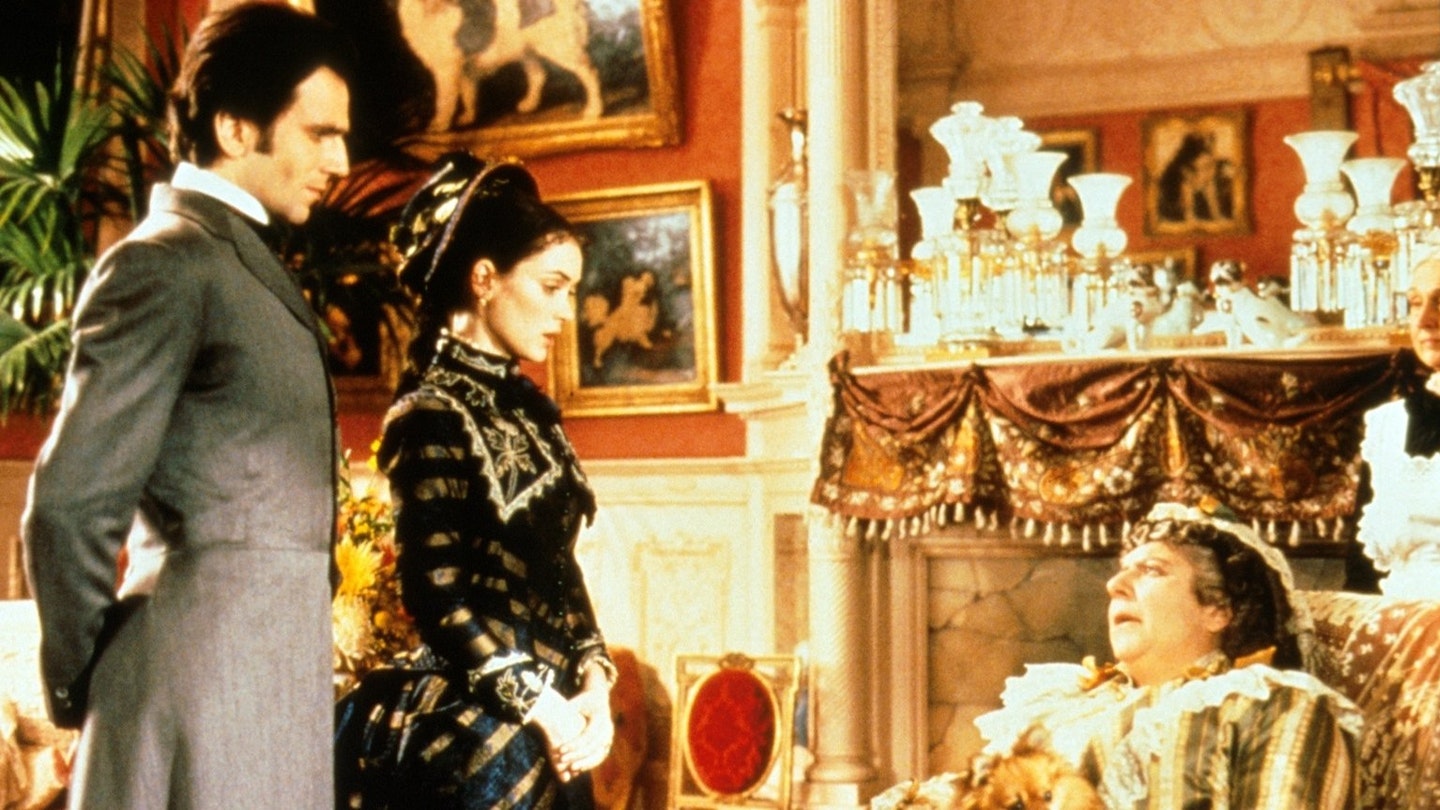Not everyone will fall in love with Martin Scorsese's lingering, voluptuous debut into classic literary adaptation, a delicately poignant, greedily sensuous revel in romantic grandeur. But for those whose idea of bliss is watching handsome people in a well-told story of love and denial, this is ecstasy from scene one, a scene in which a performance of Gounod's opera Faust provides a slyly emotive backdrop for fateful introductions and eloquently interpreted social intercourse. Edith Wharton's novel of passion, loss and high society is a penetrating record of the tribal customs of 19th Century New York's elite an exclusive world of wealth, inter-breeding and rigidly ordered behaviour informed by her upbringing among them.
The plot revolves around refined lawyer Newland Archer (Day-Lewis), whose engagement to fresh blossom May Welland (Ryder) represents a significant alliance of families, and whose attraction to her scandal-tainted, sophisticated cousin, exquisite Countess Olenska (Pfeiffer) outrages their dutiful, hypocritical, conformist circle. Scorsese, who co-wrote the literate adaptation with former Time critic Jay Cocks, has stinted nothing in his ravishing realisation of this world, impeccable from the choice of music to the graceful rhythm of Thelma Schoonmaker's editing. It may be the most obsessively, deliciously dressed and detailed mise en scene since D.W. Griffith reconstructed Babylon, with precise furnishings, floral arrangements, neckties, earrings, china, silver and meals all immaculately presented. (If they gave Oscars for Best Food Preparation, this would be a shoo-in.)
Atypically, Scorsese embraces a conventional, formal narrative here, its richness in part reliant on a frequent voiceover (elegantly read by Joanne Woodward) to translate some of the intricate subtleties of 1870s psyches and mores. In tandem with pointed close-ups of dress, body language and expression, this provides many witty nuances, such as "In London he ordered his clothes ... ." counterpointed later with "In Paris she ordered her clothes".
Typically, however, he continues to devise masterly camera tricks, potent and fanciful, that remind one whose hand is at work here. It is Scorsese's delight to enter Merchant-Ivory territory and leave his unmistakeable mark, as in exuberant overhead shots of ballroom strutters or dining-table schemers, or as in a symbolic shot of a sea of businessmen, indistinguishable one from another, struggling, in a strong wind, to retain their hats and their dignity. Day-Lewis presents a fastidious study of a man of taste, cultivation and acute sensibility, and he looks divine; indeed, currently unsurpassed at nostril flaring, when he stoops to kiss the toe of the Countess' satin slipper, his feelings no longer to be repressed, this reviewer felt quite faint. Pfeiffer, looking a picture in her velvets, feathers and furs, struggles to give depth to an enigmatic woman within the confines of strict, old world dialogue: the most highly charged scenes between Archer and the Countess are achieved with few words but heart-stopping pictures of helpless, hopeless embraces and languid looks. Ryder is the revelation, achieving a deceptively effective May as a seemingly girlish innocent of little imagination but the startling resources of a prototypical passive-aggressor.
With repressed passion's stock running high after The Piano and The Remains Of The Day, this chronicle of forbidden love scarcely needs recommendation to those longing to be carried away. In any case it's difficult to imagine anyone with an interest in American cinema emerging from the film impervious to the craft and commitment of America's greatest living director.
